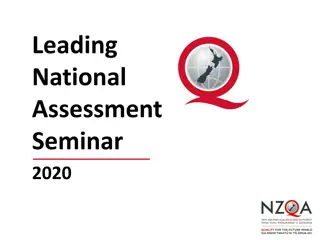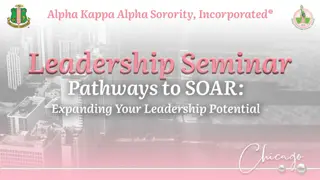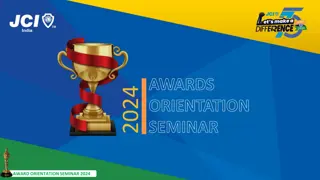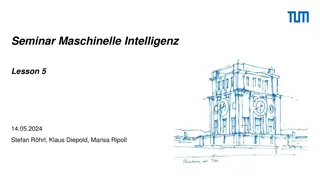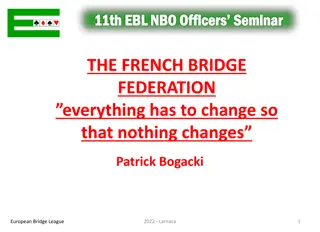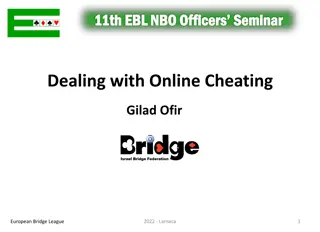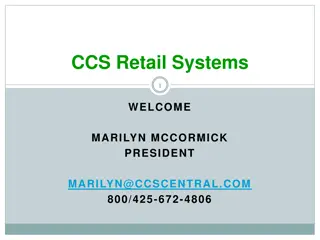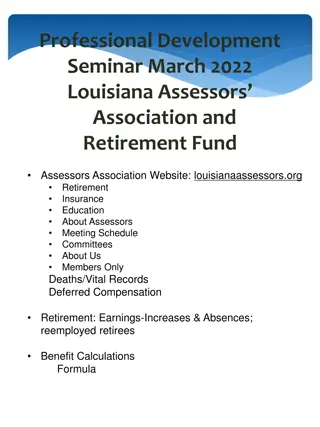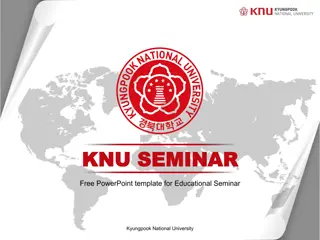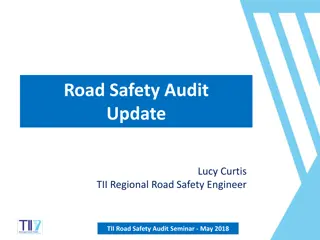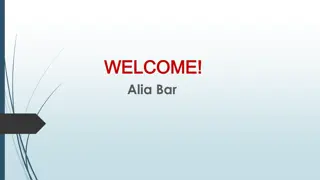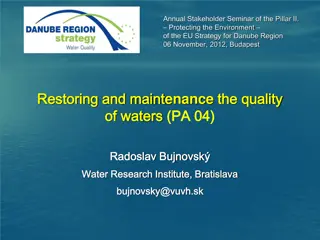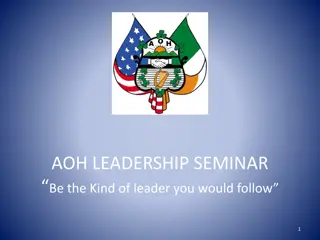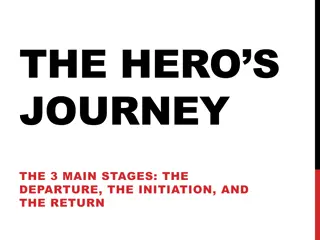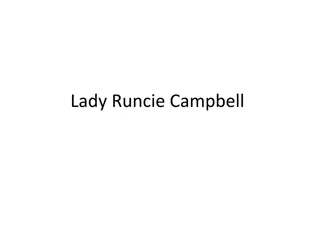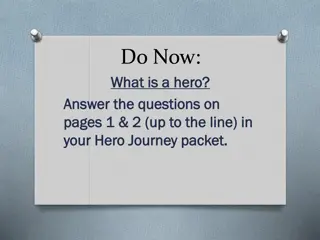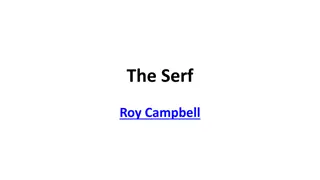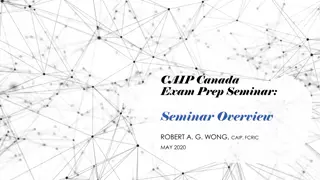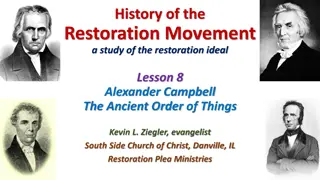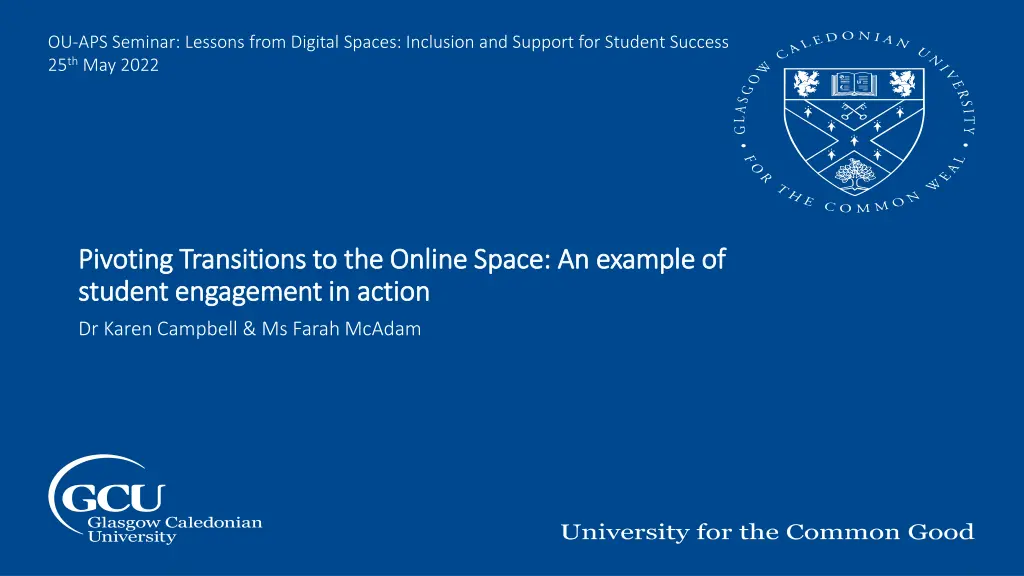
Lessons from Digital Spaces: Enhancing Student Success Through Online Transitions
Explore how a transition program successfully pivoted to the online space, fostering student engagement and inclusivity. The program's impact, outcomes, and challenges are discussed, highlighting increased attendance and progression rates for socially deprived students.
Download Presentation

Please find below an Image/Link to download the presentation.
The content on the website is provided AS IS for your information and personal use only. It may not be sold, licensed, or shared on other websites without obtaining consent from the author. If you encounter any issues during the download, it is possible that the publisher has removed the file from their server.
You are allowed to download the files provided on this website for personal or commercial use, subject to the condition that they are used lawfully. All files are the property of their respective owners.
The content on the website is provided AS IS for your information and personal use only. It may not be sold, licensed, or shared on other websites without obtaining consent from the author.
E N D
Presentation Transcript
OU-APS Seminar: Lessons from Digital Spaces: Inclusion and Support for Student Success 25th May 2022 Pivoting Transitions to the Online Space: An example of Pivoting Transitions to the Online Space: An example of student engagement in action student engagement in action Dr Karen Campbell & Ms Farah McAdam
Transition Programme Transition Programme College students 20% most socially deprived areas Entering year 2 or 3 of 4-year Scottish Hons degree Nine weeks, discipline specific, 'taster' lectures + workshops on academic skills College Connect Team Mentoring Pre-Covid-19: Face-to face On campus
Delivering the Transition Programme Delivering the Transition Programme Student Engagement Student Engagement Asynchronous online course with synchronous webinars and lectures Articulate 360 suite used to build programme Webinars and lectures hosted on Blackboard Collaborate Ultra Engagement with College Connect Team and Student Mentors Feedback collection via module surveys
Delivering the Transition Programme Delivering the Transition Programme - - Challenges Challenges Short time for redevelopment Establishing connection with students Building a sense of community
Outcomes and Student Feedback Outcomes and Student Feedback Increased attendance - 12% increase in attendance (1015 v. 907 in 2019) Increase in number of students articulating to degrees with advanced standing (853 articulating to Year 2 or Year 3 entry), 163 entering Year 1 16% increase from 2019 (734 articulating students) Increase in percentage articulating from SIMD 40: 57% of students from lowest 40% SIMD quintile (up from 50% in 2019) 94% students found programme extremely beneficial or quite beneficial
Impact Impact Engagement Engagement Zepke and Leach s Ten Proposals for Action: 1. Enhancing students self-belief 2. Enable students to work autonomously, enjoy learning relationships with others and feel they are competent to achieve their own objectives 3. Recognise that teaching and teachers are central to learning 4. Create learning that is active, collaborative and fosters learning relationships 5. Create learning opportunities for students that are challenging, enriching and extend their academic abilities 6. Ensure institutional cultures are welcoming to students from diverse backgrounds 7. Invest in a variety of support services 8. Adapt to changing student expectations 9. Enable students to become active citizens 10. Enable Students to Develop their Social and Cultural Capital
Examples Examples Welcoming institutional culture Collaborative learning relationships Self-belief Recognise that teaching and teachers are central to learning Signposting support Becoming active citizens
Moving forward Moving forward Further research: Other protected characteristics and inter-sectionality Progression, retention and success Sense of belonging and delivery mode
Thank You Thank You Dr Karen Campbell Research Fellow, Educational Research and Evaluation Karen.Campbell@gcu.ac.uk https://www.gcu.ac.uk/adsl/meettheadslteam/karencampbell/ Ms Farah McAdam GCU College Connect Development Officer Farah.mcadam@gcu.ac.uk https://uk.linkedin.com/in/farah-mcadam-5a677019a https://www.gcu.ac.uk/study/collegeconnect/meettheteam/

